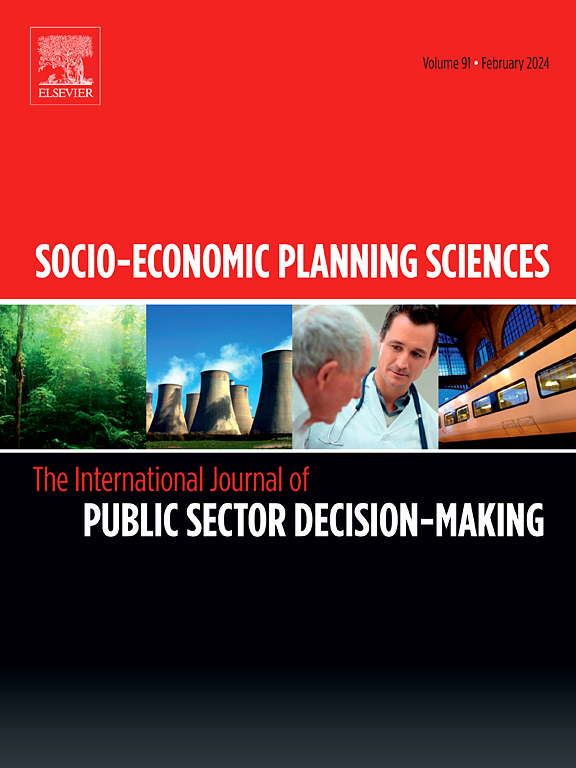Measuring the causal economic effects of scientific research—Evidence from the staggered foundation of the SENAI innovation institutes in Brazil
IF 5.4
2区 经济学
Q1 ECONOMICS
引用次数: 0
Abstract
How to estimate the economic returns of public science is a longstanding but equally challenging topic in quantitative science studies. In this paper, we exploit the staggered foundation of the SENAI Innovation Institutes (ISI) in Brazil since 2012 to estimate their effects on GDP using a difference-in-differences (DiD) approach. Building on historical and institutional insights from interviews on the foundation process, we unravel the conditions under which the parallel trends assumption is likely to hold. Our analysis reveals that these institutes significantly contribute to GDP per capita, with an average treatment effect of 985 BRL (approximately €160). Moreover, by relying on detailed project-level data, we were able to show that the effects come almost exclusively from genuine research projects and not from the provision of scientific services, such as metrology. Finally, tentative calculations suggest that the SENAI ISI institutes may account for about 0.66 % of Brazil's overall GDP, emphasising the importance of applied science in regional economic development and providing insights into effective collaboration between research and industry.
衡量科学研究的因果经济效应——来自巴西SENAI创新机构交错基础的证据
如何估计公共科学的经济回报是定量科学研究中一个长期存在但同样具有挑战性的课题。在本文中,我们利用2012年以来巴西SENAI创新研究所(ISI)的交错基础,使用差异中的差异(DiD)方法估计它们对GDP的影响。基于对基础过程的历史和制度的见解,我们揭示了平行趋势假设可能成立的条件。我们的分析表明,这些研究所对人均GDP的贡献显著,平均治疗效果为985巴西雷亚尔(约160欧元)。此外,通过依赖详细的项目级数据,我们能够表明,这些影响几乎完全来自真正的研究项目,而不是来自科学服务的提供,比如计量。最后,初步计算表明,SENAI ISI研究所可能占巴西总体GDP的约0.66%,强调了应用科学在区域经济发展中的重要性,并为研究与工业之间的有效合作提供了见解。
本文章由计算机程序翻译,如有差异,请以英文原文为准。
求助全文
约1分钟内获得全文
求助全文
来源期刊

Socio-economic Planning Sciences
OPERATIONS RESEARCH & MANAGEMENT SCIENCE-
CiteScore
9.40
自引率
13.10%
发文量
294
审稿时长
58 days
期刊介绍:
Studies directed toward the more effective utilization of existing resources, e.g. mathematical programming models of health care delivery systems with relevance to more effective program design; systems analysis of fire outbreaks and its relevance to the location of fire stations; statistical analysis of the efficiency of a developing country economy or industry.
Studies relating to the interaction of various segments of society and technology, e.g. the effects of government health policies on the utilization and design of hospital facilities; the relationship between housing density and the demands on public transportation or other service facilities: patterns and implications of urban development and air or water pollution.
Studies devoted to the anticipations of and response to future needs for social, health and other human services, e.g. the relationship between industrial growth and the development of educational resources in affected areas; investigation of future demands for material and child health resources in a developing country; design of effective recycling in an urban setting.
 求助内容:
求助内容: 应助结果提醒方式:
应助结果提醒方式:


